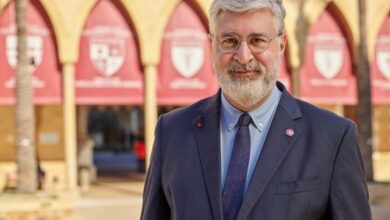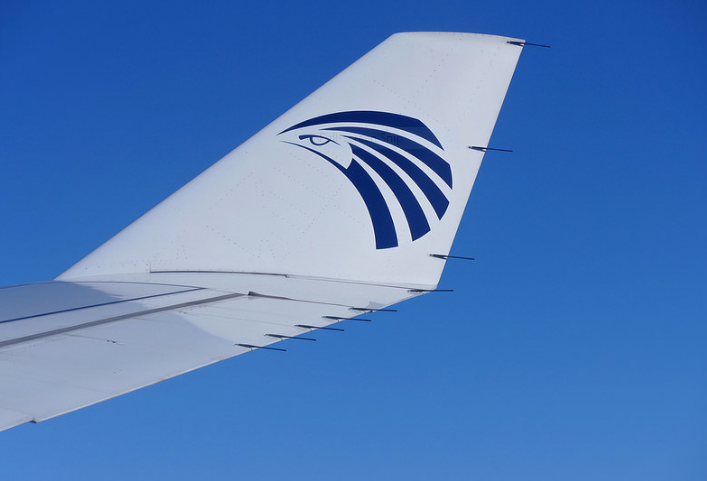The serenity of Ibrahim Monzer Street in Ashrafieh in the eastern suburbs of Beirut was shattered Friday when a bomb exploded, setting this predominately Christian quarter ablaze. Coincidently, just down the street, 31 years earlier, a much bigger explosion killed President-elect Basher al-Gemayel.
The first impression that spread across the country were thoughts of fear, as this explosion was perceived by many as an act of sporadic sectarian violence.
These feelings, however, were shortly replaced by the horrific reality that this 70-kilogram bomb had targeted the head of the Lebanese Internal Security Forces-Information Branch, (ISF-IB), the infamous General Wissam al-Hassan. But contrary to earlier acts of political assassinations, it took the Lebanese authorities almost two hours to confirm the identity of Hassan and his driver, who followed a strict and almost unpredictable security procedure that made his movements unknown even to his immediate superiors.
This paranoia was justified because over the last seven years as Hassan, the pro-14 March security guru, was successful in quelling a number of dangers targeting the country, ranging from the numerous Israeli spy rings the ISF-IB uncovered, as well as its pivotal role in assisting the Special Tribunal for Lebanon with trying suspects in the 2005 assassination of former Lebanese Prime Minister Rafik al-Hariri.
Hassan, who was able to assemble a group of talented and educated young officers trained in the modern art of counter-intelligence, was able to trace out the communications network that the assassins used to carry out Hariri’s killing. Among these officers was the late Captain Wissam Eid, a computer engineer who was also assassinated in 2008.
The Special Tribunal for Lebanon, working closely with Hassan and his men, issued its indictment, which implicated a number of high-ranking Hizbullah members. This, of course, was countered by Hizbullah as being part of a Western-Zionist plot to destroy the party and put it at odds with the Lebanese at large. The group in turn revealed its own evidence implicating Israel in the Hariri assassination.
Hassan fait accompli, however, came last summer when he was able to thwart the Michel Samaha plot. The former Lebanese information minister — under directions from Syrian President Bashar al-Assad — was planning a series of bombing to sow seeds of sedition, or fitna,by targeting Sunni areas as well as the Maronite patriarch.
Anti-Syrian Lebanese politicians were quick to accuse the Assad regime of Hassan’s assassination, considering that this was an outright retribution against Samaha. Progressive Socialist Party leader Walid Jumblatt was unwavering by declaring, “There is one person to accuse from the killing of Rafik al-Hariri to Wissam al-Hassan and that person is Bashar [al-Assad].”
However, when Jumblatt was asked about the accusations that Hizbullah was possibly involved in this killing, his answer was both enlightening and alarming. His response was that “these voices who are accusing Hizbullah are just stupid, because it will only enhance sectarian conflict. We have to target the enemy number one, the Syrian regime.” Jumblatt’s statement was extremely revealing, asserting that no internal Lebanese faction was involved in this brutal act and therefore the already existing Sunni-Shia schism was to remain dormant. Despite the fact that the majority of the anti-Syrian opposition followed Jumblatt’s suit in accusing Assad, their public refused to exonerate Hizbullah from its possible role.
While it is true that Hassan has embarrassed Syria and its allies through his continuous crackdown of their activities, his killing should be perceived as a somewhat preemptive strike carried out by either Syria or its allies to neutralize his security role as well as to deal a fatal morale blow to the Lebanese Sunni community, which has actively supported the Syrian revolution from its onset.
Had the so-called Sunni street been convinced of Syria’s sole role in Hassan’s killing, it would have refrained from taking to the streets in what amounted in some areas to an armed rebellion against the Hizbullah-backed government of Najeb Mikati. Mikati’s outright accusation of Assad over the killing was unsuccessful both in quelling the agitation and silencing the voices demanding his immediate resignation.
While all eyes have now turned to Jumblatt to resign from the cabinet and thus force Hizbullah to accept a national salvation government, the reality of the matter dictates otherwise. At this stage, the government is still deliberating the next electoral law, which would govern the upcoming parliamentary elections slated for this summer — an election that both Jumblatt and the 14 March coalition adamantly want to take place.
Furthermore, a power vacuum that a cabinet resignation would bring about is extremely dangerous, given the events in Syria, especially with Hizbullah’s palpable role in fighting alongside Assad’s forces. Hizbullah thus far has only issued the usual ceremonial eulogy describing “the horrible crime as an attempt against Lebanon’s stability and national unity.”
However, this has not convinced the public that Wissam al-Hassan’s skillfully executed assassination could have been carried out by the same regime that a few months earlier had resorted to Samaha, its court poet, to carry out — a task reserved to individuals with profiles similar to the men indicted by the STL.
This externalization of blame would defiantly avert Lebanon from the always-looming ghost of civil strife, but this, of course, requires both sides to blame Syria, something that neither Hizbullah nor its allies would adopt anytime soon. The issue thus remains in how we look at the Lebanese powder keg — half full or half empty.
Makram Rabah is a PhD candidate at Georgetown University’s history department. Rabah is the author of “A Campus at War: Student Politics at the American University of Beirut, 1967–1975.”




